Thank you for the mention, Dr. Jayne — we appreciate the callout, the kind words and learning more about the…
Monday Morning Update 1/27/14
From Brute Forceps: “Re: Leidos Health. President Steve Comber is stepping down.” Unverified, but BF included a purported email from Steve to his team announcing his departure. “Our Executive Leadership, along with the Board of Directors, have made a decision to further invest in health by adding a recognized & proven industry leader at the forefront of our health business. As such, in the very near term a search will be underway for a health expert / leader who will be chartered with the responsibility of taking our health business to the next level.”
From Cabana: “Re: [company name omitted.] They are blocking access to your site after you wrote something uncomplimentary about them.” It’s my crowning achievement when a company blocks access to HIStalk. Given previous examples involving clueless, egotistical executives intent on guiding their enterprises right into the ground, I can say with confidence that employees reading factual information on HIStalk should be the least of their worries.
From Scooper: “Re: Martin Hospital. You scooped the main media on their EHR crash.” I just happened to have a reader with a friend who was admitted at the time and he passed the information along to me. CIO Ed Collins was nice to provide a response. The contact said it was chaos in the hospital, with confused employees assigning random numbers to patients, runners delivering paper copies of everything, medication errors occurring, and unhappy family members threatening to sue everything that moved (all unverified, of course.) The hospital says the problem was hardware, not Epic, and claims (as hospitals always do) that patient care wasn’t impacted. Of course patient care was impacted – the $80 million system that runs everything went down hard. It would be interesting for Joint Commission or state regulators to show up during one of these hospital outages anywhere in the country to provide an impartial view of how well the downtime process works. All that aside, downtime happens and the key is preparing for it, just like Interstate Highway construction and lane-closing accidents. It’s not a reason to drive a horse and buggy.
From Keith: “Re: UCSF death in the stairwell case. Four caught snooping.” San Francisco General Hospital announced for the first time Friday that a routine audit of the electronic records of high-profile patients turned up four employees who looked at records of the patient who was found dead in a hospital stairwell in October 17 days after she disappeared from her inpatient bed. Two of the employees have been fired and two were suspended. The hospital announced changes Friday as mandated by CMS after the incident, in which the hospital performed an incomplete search, alarms and cameras were found to be out of order, an incorrect description of the patient was issued to searchers (the hospital said to look for a black woman in a hospital gown, but the patient was white and wearing her own clothes), and the sheriff’s department failed to follow up on a report of a body lying in the hospital’s stairwell.
From The PACS Designer: “Re: Windows upgrades. The decision to upgrade from Windows XP, which will go off support in April, will be a challenge for most of us. Do we go to Windows 7, 8.1 or wait for Windows 9? Most likely Windows 7 will not be that choice due to its limited future with Windows 9 coming. Windows 8.1 with its rumored Upgrade 1 will be a likely choice since it will be easier to make the move to Windows 9 when its ready for release.” Windows 8 has been an amazing success with one group – the companies that sell add-ons to hide the absurdly annoying tile-driven Metro user interface. It’s probably fine if your computing needs are so basic that you can use a touch screen, but if that’s the case, you might as well just use a tablet, preferably one not running anything from Microsoft.
No clear trend exists for vendor layoffs, respondents said. New poll to your right: how often do you check your work email after hours and on weekends?
Upcoming Webinars
February 5 (Wednesday) 1:00 p.m. ET. Healthcare Transformation: What’s Good About US Healthcare? Sponsored by Health Catalyst. Presenter: John Haughom, MD, senior advisor, Health Catalyst. Dr. Haughom will provide a deeper look at the forces that have defined and shaped the current state of U.S. healthcare. Paradoxically, some of these same forces are also driving the inevitable need for change.
February 12 (Wednesday) 1:00 p.m. ET. Healthcare CO-OPs and Their Potential to Reduce Costs. Sponsored by Health Catalyst. Presenters: David Napoli, director of performance improvement and strategic analytics, Colorado HealthOP and Richard Schultz, VP of clinical care integration, Kentucky Health Cooperative. Consumer Operated and Oriented Plans (CO-OPs) were established by the Affordable Care Act as nonprofit health insurance companies designed to compete in the individual and small group markets. Their intended impact was to provide more insurance options for consumers to pay for healthcare.
February 13 (Thursday), 12 noon ET. Advancement in Clinician Efficiency Through Aware Computing. Sponsored by Aventura. In an age of information overload, a computing system that is aware of the user’s needs becomes increasingly critical. Instant-on roaming for virtual and mobile applications powered by awareness provides practical ways to unleash value from current HIT investments, advancing efforts to demonstrate meaningful use of EHRs and improve clinical efficiencies. The presenters will review implementation of Aventura’s solution at Orange Coast Memorial Medical Center.
HIStalkapalooza last chance: registration to request an invitation ends Wednesday. We’re planning to email invitees the following Tuesday, February 4. Thanks to Imprivata for sponsoring the event – it’s going to be a big deal.
Welcome to new HIStalk Platinum Sponsor Greencastle. The Malvern, PA-based company was founded in 1997 by two former US Army Rangers who brought to the consulting world the military concepts of sense of purpose, discipline, teamwork, and systematic methods. They make it a point to hire junior military officers (among others) and help them apply their skills to the corporate world. Greencastle consultants are ready to take responsibility for large-scale clinical and business initiatives to help healthcare organizations maximize the value of change. Services include clinical systems implementation, application consulting, project management, and system selection. The company did a CHIME focus group presentation on building a business case for analytics and offers white papers. Thanks to founders Celwyn Evans and Jacob Kretzing for their military service and to Greencastle for supporting HIStalk.
Listening: Failure, deeply lush, ambitious, influential, and prophetically named 1990s alt-rock (Pink Floyd meets Radiohead) that nobody’s heard of despite their stunning 1996 concept album masterpiece “Fantastic Planet,” which they played great live. They broke up in 1997, but are reuniting this year.
South Nassau Communities Hospital (NY) adds dbMotion and FollowMyHealth to its Allscripts portfolio, joining Sunrise.
Beth Israel Deaconess Medical Center (MA) receives a $5.3 million private grant to develop IT-driven ICU tools that include a patient-specific clinician checklist dashboard and a patient-family communications display. BIDMC joins Johns Hopkins Medicine, UCSF, and Brigham and Women’s as part of the Libretto ICU Consortium of the Gordon and Betty Moore Foundation.
A federal judge orders St. Luke’s Health System (ID) to divest itself of the Saltzer Medical physician group it bought last winter, saying the hospital’s ownership of 80 percent of the primary care doctors in Nampa, ID would give the health system an unfair bargaining position with insurance companies even though the intent of the acquisition was motivated only by improved patient outcomes. St. Luke’s had defended the acquisition in responding to a lawsuit brought by competitors and the Federal Trade Commission, arguing that the merger would support new risk-based care models and that its $200 million Epic system will be better than anyone else’s when implemented.
NHS Hack Day was held this past weekend in Cardiff, Wales, bringing together people with healthcare-related problems and developers ready to build rapid software prototypes to solve them.
A eye movement study of 100 primary care patient visits finds that EHR-using doctors spend a third of their time looking at the computer monitor, making it hard for patients to get their attention and reducing the physician’s ability to listen and think. The study also found that patients look almost constantly at the EHR screen instead of their doctor even though they have no idea what anything on it means. The author suggests that vendors design EHR displays that both physicians and patients can use.
Several members of Austin’s city council question the city’s plan to offer athenahealth incentives to move one of its operations there when demand for Austin commercial space is already high. Said one of the council members, “While it’s great that the company is looking to hire locally, we don’t have 336 software people that are unemployed right now. That’s not a target area and it could be an onus on companies that we already here.”
In England, ministers vote to limit government IT contracts to $165 million other than for an “exceptional reasons,” also barring vendors that provide hardware and software from implementing their products themselves. Contracts will also be limited to a two-year term with no automatic extensions. According to Cabinet Office Minister Francis Maude, “Big IT and big failure have stalked government for too long. We are creating a more competitive and open market for technology that opens up opportunity for big and small firms.” Maude drove the government’s “digital by default” effort to centralize government websites and use technology to make its services more efficient.
The board of Cookeville Regional Medical Center (TN) approves a five-year, $1.5 million expenditure for RelayHealth’s patient portal.
Puget Sound Blood Center (WA) issues an emergency appeal for blood donations after a regional telecommunications outage forces it to cancel blood drives and donor collection.
A man cleaning the vacated office of an Ohio family practice physician finds an old computer containing the electronic records of 15,000 patients. The doctor had told the man to keep anything he wanted and send everything else to the trash. The doctor says the PC was left behind by mistake and he wants it back, adding that it is password protected, but the local newspaper found the desktop icon above that opens a Word document containing the names and passwords of all the practice’s employees.
Weird News Andy titles this story “Jailhouse Rock” and adds a guitar pun in proclaiming the protagonist to be “high strung.” A 54-year-old male patient claims to be Pink Floyd’s David Gilmour and Rush’s Alex Lifeson during several hospital stays, telling the hospitals that his agent would take care of his bill. Obviously not only did hospital staff not ask for ID, they don’t know either band very well because the man’s resemblance to either guitarist (above) is slight.
Contacts
Mr. H, Inga, Dr. Jayne, Dr. Gregg, Lt. Dan, Dr. Travis, Lorre.
More news: HIStalk Practice, HIStalk Connect.


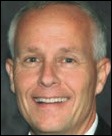


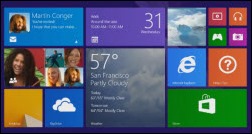
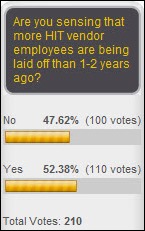

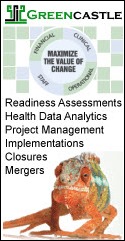



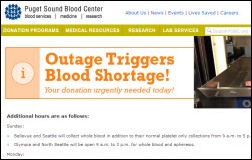





Re: PACS Designer and Windows 8 “Windows 8 has been an amazing success with one group – the companies that sell add-ons to hide the absurdly annoying tile-driven Metro user interface” – actually, the add ons are great because they bring back the Start menu, looking and acting almost exactly like that in Win 7. I use Start8 myself. Microsoft was arrogant to simply remove that user interface feature, to inflict their vision – forcefully – on users of how they should interact with a computer. Removing a centralized, time-proven interface item such as that was a bad decision, as shown by the market. Unfortunately, the same IT industry that detested Microsoft’s decision is forcing clinicians,especially employed ian/or hospital-affiliated ones, to use their version of the medical record and the interfaces they think appropriate. The clinicians have no $5 “Start8” add on they can purchase.
Re: “Scooper”. I’ve been accumulating a bunch of “our IT systems went out, but patient care was not compromised” examples, at http://hcrenewal.blogspot.com/search/label/Patient%20care%20has%20not%20been%20compromised
My conclusion is similar to your – better downtime processes and procedures – but further, minimal downtime through redundancy, as this is a life-critical setting. Of course, redundancy imbalances the cost/benefit equation.
I also opine that unexpected outages, even with better downtime processes and procedures, will always compromise patient safety due to the disruptions involved and the complexities of medical care. Just hope you or a loved one is not seriously ill, or coding, when it happens.
#MartinHealthOutage
Glad to see your willingness to disclose the impact of the crash.
I am confused as to how a “hardware” (“The hospital says the problem was hardware, not Epic, and claims (as hospitals always do) that patient care wasn’t impacted. “) problem would cause a system wide crash and blank screens for nearly 48 hours (Jan 22-Jan 24).
The vendor crashed at Sutter and elsewhere in recent months.
The hospital has some splainin to do in its attempt to protect the vendors’ devices.
Interesting, unfortunate and disappointing that an employer (vendor I presume?) would block HISTalk. In this world where every publishing house sees the healthcare industry as their next frontier to keep the struggling industry going, HISTalk is the one and only to have true, unbiased integrity. An integrity that goes beyond the definition (past and present tense) of journalistic integrity. I daily block and tackle news feeds and industry reports that my non-healthcare colleagues pass my way that are outdated, unfounded, subjectective and typically charge a fee to order. Thank you for never compromising, and showing that one can add sponsors and still keep to their honest and true mission.
Re PACS designer…W8.1 is a great improvement on W8 and W9 promises to make some additional workflow improvements (for example, windowing of Metro apps). In truth, the OS really needs the right hardware for it click. Using it on a Lenovo Yoga almost feels magical. My wife practically doesn’t pick up her iPad anymore. No need to considering she can more comfortably work and play on one device.
If you are confused by how a hardware failure could cause the problem, then you have a lot to learn about IT.
When you have a system that runs on top of a network(most if not all modern EHRs), it genreally will not run without the network.
A network is comprised entirely of interconnected devices(hardware) with the connections being maintained and routed by other pieces of hardware. If the right(or perhaps wrong) piece of hardware used for managing the network goes down, it can bring the network down with it(depending on network design).
Think back years ago when we were all using wired phones. You pick up the reciever and a wire conected it to the wall. You could talk and listen on the receiver as long as the line to the wall was intact but if someone took a scissors and cut it, it would drop your call and you would not be able to make a new call until you replaced the line.
Not Tired of Suzy, RN:
Epic doesn’t sell devices, they don’t drop off a black box data center with their software running on it (though you’d think that with the dollar numbers thrown off for Epic implementations). It’s the responsibility of the organization to provide the infrastructure.
I don’t know (and have never heard of) Leidos Health or Steve Comber. I just hope the Leidos decision-makers know what they’re looking for. In my 40+ years in the business, I’ve met plenty of so-called “experts” who could not lead or manage. If it were my decision, I would have a great manager/leader at the top and have the expertise scattered throughout the organization. A single “expert” probably doesn’t exist — and would be dangerous if he/she thinks he/she knows everything.
AC, SuzyQ loves to refer to EHR systems as “devices” because she wants them regulated by the FDA like medical devices are. It is her incessant, not so subtle, way to drive that agenda.
Eye movement study and EHR
I sold physicians EHR systems from 1995 to 2008. Even back in the 1990’s I recommended physicians use tablet PCs to maintain eye contact with patients instead of fixed monitors. Instead of documenting on a paper chart in their hand they documented on the Tablet PC in hand. The early tablet PCs were heavy, expensive and needed battery changes to last a full work day Today with lightweight,inexpensive iPads and Android tablets with great battery life they should be the choice for the majority of practices.